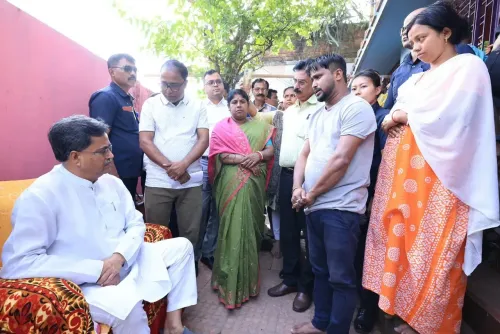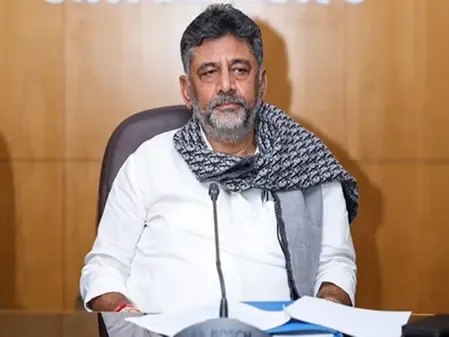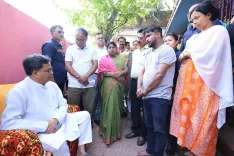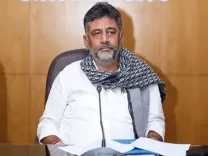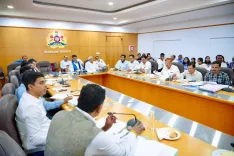Is the Election Commission Ignoring Questions from Rahul Gandhi?
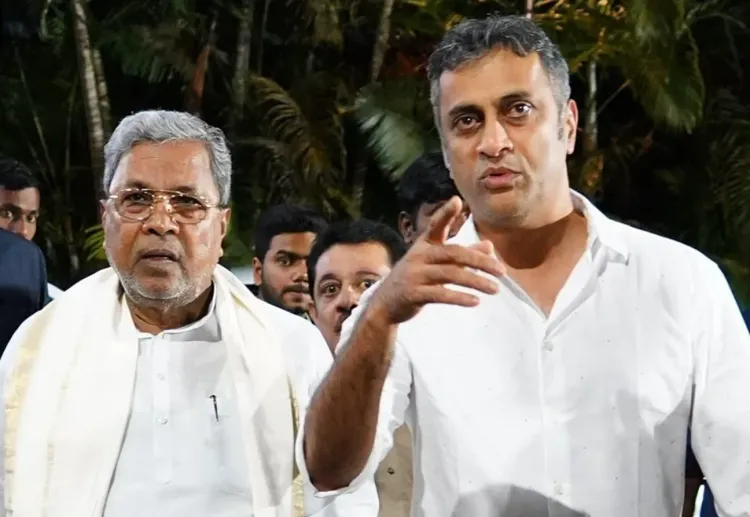
Synopsis
Key Takeaways
- Election Commission's lack of transparency raises questions about electoral integrity.
- Rahul Gandhi's allegations highlight the need for accountability in the electoral process.
- Legal procedures for voter registration and objections need clarification.
- Constitutional bodies must maintain their credibility.
- Public trust in the electoral system is essential for democracy.
Bengaluru, Aug 13 (NationPress) The Legal Advisor to Karnataka Chief Minister Siddaramaiah and Congress MLA A.S. Ponnanna stated on Wednesday that the Election Commission (EC) is failing to respond to inquiries posed by the Leader of the Opposition (LoP) in the Lok Sabha, Rahul Gandhi. Instead, the EC is demanding that he provide an oath along with his complaint regarding the alleged “election fraud.”
“The EC has not been transparent and is neglecting the serious inquiries raised by LoP Rahul Gandhi. Rather than addressing these fundamental questions that impact the essence of Indian democracy, the Election Commission of India (ECI) has adopted a stance that is unacceptable, even by legal student standards,” Ponnanna remarked to reporters in Bengaluru.
In response to serious allegations of significant irregularities and discrepancies in the voters' list made by LoP Rahul Gandhi, the Election Commission issued a surprising response, demanding that he appear under oath in accordance with Rule 20 (3) of the Registration of Electors' Rule 1960. Furthermore, they threatened action if he did not comply with their directives.
“These rules, the Electors' Rules 1960, do not apply to the allegations raised by Rahul Gandhi. Citing a single subclause of a rule in response to these serious allegations is illogical. The electoral rules are meant for the registration of voters, objections to these registrations, and claims,” he explained.
Ponnanna emphasized that these rules cannot be selectively interpreted to serve as a defense.
“Rules 12 to 20 encompass the entire process. They relate to individual voters' requests to be added, objectors opposing such requests, and those seeking to have voters removed,” he stated.
He added that the Election Registration Officer is authorized to address such objections and claims by either approving or denying them without any formal inquiry and possesses the authority under Rule 70.
“Should he feel an inquiry is warranted, he can initiate a summary inquiry, issuing a notice to the claimant or objectors. During this inquiry, he can request either party to appear under oath, as stated in subclause 3 of Rule 20,” he noted.
Ponnanna clarified that this is the protocol for the inclusion and deletion of voters.
“If I wish to register as a voter in Bengaluru, this is the procedure. How does this relate to the allegations of illegalities and misuse of machinery concerning an unclean electoral list, as pointed out by LoP Rahul Gandhi? There is no relevance,” he further argued.
He asserted that it is concerning that the ECI, a Constitutional entity responsible for upholding the integrity of the electoral process and voter registration, resorts to such unreasonable defenses.
“The entire response from the EC indicates they are attempting to conceal something,” Ponnanna claimed.
Previously, Karnataka Chief Electoral Officer (CEO) V. Anbukumar had sent a notice to LoP Rahul Gandhi, requesting relevant documentation regarding his allegations of election fraud. The CEO also emphasized in the notice that the documents presented during LoP Rahul Gandhi's press conference were not official.

